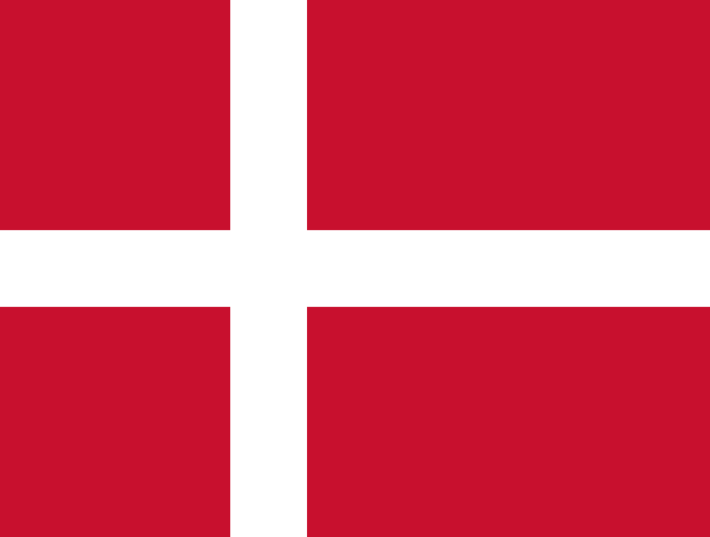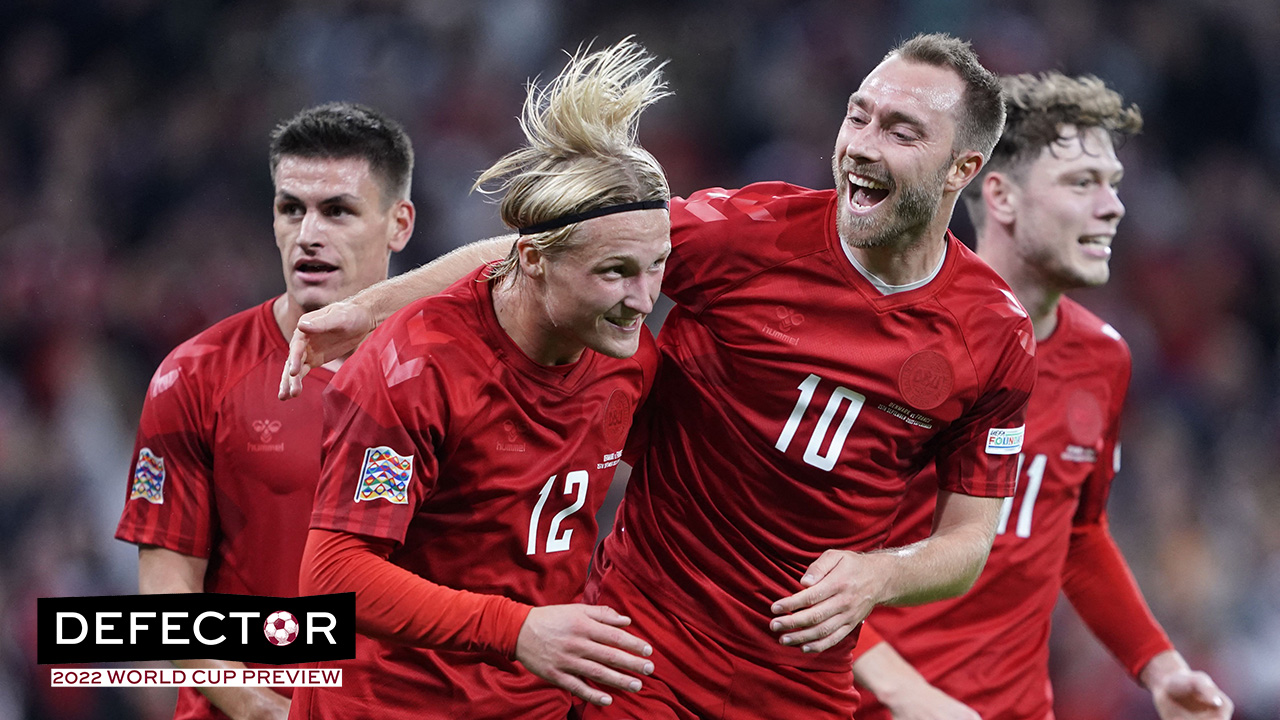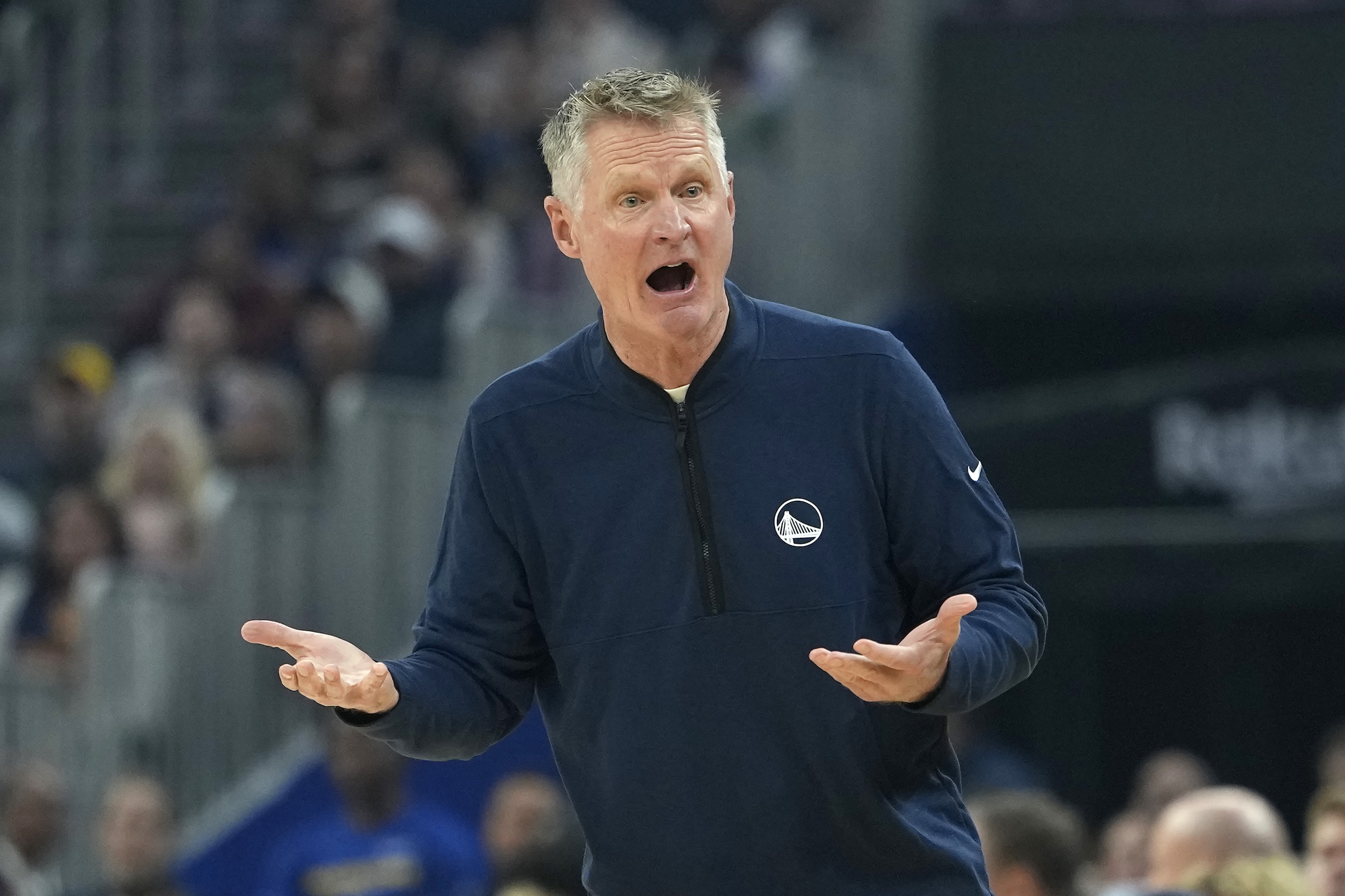It’s almost time for the 2022 World Cup. To help get you ready, we will be providing you with precious information about every team in the tournament. You can read all of our World Cup previews here.
Denmark enters the 2022 World Cup at the best possible time. After decades of being just good enough to not matter, the Danes have put together a side that has hit all of the pre-tournament markers fans might want to see. Though they did not win their Nations League group, they had two big victories against the defending World Cup champions of France along the way, and the team currently sits in 10th on FIFA's rankings. Sure, those rankings don't mean all that much, but they can be used as a shorthand for a reality facing Denmark's opponents in the tournament: the Danish Dynamite is for real, and they are not coming to Qatar to bow out meekly.
As I asked last summer during the team's run to the Euro semifinals, where it lost to England, I must ask again: Why not Denmark? The team is, on paper, not as strong as the heavyweights, or even the dark horses, but it is a cohesive and spirited unit all centered around the miraculous return of Christian Eriksen after his cardiac arrest in the first game of those Euros. The defense is stout: in 15 games since the Euros, the team has only conceded 10 goals, and four of those came in a meltdown against the Netherlands in a March friendly. The center back pairing of Barcelona's Andreas Christensen and AC Milan's Simon Kjaer is especially sturdy, and helped Denmark cruise through World Cup qualifying conceding only three goals.
The midfield flows around the No. 10 star of Eriksen, but likely starters Thomas Delaney and Pierre-Emile Hojbjerg are no slouches, with the latter especially enjoying a good season at Tottenham. The attack might be the weakest part of the Danish side, as none of its young, or old, forwards have exactly blown Europe to pieces during the club season. Still, they can get goals, and if the defense comes to play as it has for a year-plus, they might not need to score too many.
For Denmark to match its run to the Euro semis, though, it will need to put in some hard work from the start. In order to avoid a potential round of 16 matchup with Argentina, the Danes will have to win Group D, a tough task in a group with France. While the Danes beat the French twice in 2022, it's likely that France will be more locked in as it attempts to defend its title. If Denmark can do it, though, and advance as group winners, its path to the semis becomes a lot more manageable. Instead of Argentina in the round of 16, it could face either Mexico or Poland, followed by a potential England rematch in the quarters.
In World Cups past, this is where Denmark would likely top out at, but as the team has proven in its current era, it can beat anyone under the right circumstances. Even just a run to the quarterfinals would match the country's best finish at a World Cup, but the way this team is constructed and is playing hints that more is possible. It may run counter to the country's history at the world's biggest tournament, but Denmark is one of the potential catalysts for chaos in Qatar. A handful of good performances, not even great ones, and the Danes could barge their way to the front of the biggest stage in soccer.
Who Is Their Main Guy?
Christian Eriksen is lucky to be at the World Cup. Hell, he is lucky to be alive. At last summer's Euros, Eriksen collapsed during Denmark's group stage game against Finland, a terrifying sight for anyone tuned in. He was on the ground for about 10 minutes, and Denmark team doctor Morten Boesen stated that he was "gone" before he was resuscitated. That he ended up being as alright as anyone can be after being unconscious for so long was a minor miracle, one trumped only by the fact that Eriksen was back on a soccer field for Brentford in February of 2022, just eight months after his cardiac arrest.
Since then, Eriksen has made a move to Manchester United, and played like the Eriksen of old. This is great news for Denmark: At his best, the 30-year-old maestro is the engine that drives Denmark's best attacks. He ranks among the best midfielders in Europe at all important playmaking categories, including assists per game, shot-creating actions, progressive passes, and even shots. That's for his club; for Denmark, his importance is even higher, as he ranks 5th all-time for goals at the national team, the highest of any active player.
Eriksen isn't the paciest midfielder, especially as he's gotten older, but the skills he does have are ageless. He's a smooth dribbler on the ball, and exceptionally difficult to dispossess. His ability to pick out both diagonals to wingers and through balls to attackers helps open up packed-in defenses, which Denmark has faced more and more during its current stint of golden soccer. And he's a reliable hand at set pieces, which the Danes will need against teams of the highest level.
One of those teams is France, who Denmark beat 2–0 in the Nations League back in September. The best player on the field that day was, naturally, Eriksen, who pulled the strings from the center of midfield, drawing in France's own midfield to open up space for both of Denmark's goals.
On the first Danish goal, Eriksen hit a pinpoint diagonal to Mikkel Damsgaard—more on him in a bit—that allowed the winger to dump a gorgeous ball into Kasper Dolberg for the opener. On the second, it was Eriksen's clean corner to a wide open Joachim Andersen that led to the eventual goal from Andreas Skov Olsen. Everything runs through Eriksen, and for Denmark to have a shot at repeating its last two matches against France—that 2–0 win in September and a 2–1 comeback win in June—he'll have to do it once again at his first international tournament since the incident in Copenhagen.
Who Is Their Main Non-Scoring Guy?
On the other end of the field for Denmark is a player who is almost as important to its outcome in Qatar, though perhaps more in a negative sense: former Leicester City and current Nice goalkeeper Kasper Schmeichel. The son of Manchester United and Denmark legend (and current terrible broadcaster) Peter Schmeichel, Kasper Schmeichel moved to France this past summer after an 11-year stint between the sticks for Leicester, which included that shock Premier League title in 2016.
The 36-year-old is not as good as he once was, and he still makes some of the same boneheaded mistakes that hounded him earlier in his career. Experience has not sanded those edges, and his first few months in Nice have been plagued with fitness issues, accusations of insubordination, and lateness. Denmark doesn't really have any better options, though, so even with Schmeichel's rough stretch this season, he will likely be the No. 1 in Qatar. The Danes will hope that he can recover some of his Leicester form, and that he will keep his mistakes to a minimum, because this team can't afford to give up more goals than it absolutely has to.
Where's The Beef?
Which teams or players does Denmark not like? Do Denmark's players like each other? We investigate their potential enemies.
Denmark has already conquered the looming shadow of calamity once in the last 18 months, so "mortality" is not so much a rival as a foe conquered. Elsewhere, Denmark's only true rival in regional soccer, Sweden, lost to Poland in UEFA qualifier play, and so will not be in Qatar, robbing the Danes of its natural enemy in the tournament.
In that case, let's turn it over to France here. There's not a sordid or spicy history between these two teams, but 2022 will be the fourth time that these two teams face off in the group stages of the World Cup. France won the first matchup 2–1 in 1998, but then Denmark returned the favor with a 2–0 win that really drove the nail into France's 2002 coffin. Finally, the two teams drew 0–0 in 2018, in a game that neither team needed to win to advance.
Despite the vast difference in historical success at the World Cup, this has been an even rivalry throughout the years, and this is perhaps the closest these two teams have been in quality to each other, thanks to Denmark's fine form. As mentioned above, the Danes also have no fear of the defending champions; if anything, France will be racking its brain to figure out to overcome the 4–1 aggregate deficit it suffered during the Nations League. The winner of that match, if there is one, will be in the driver's seat for the group's top spot, which would put it in the much more manageable half of the knockout rounds. Oh, and thankfully for neutral observers, this match will take place second in the group, which means there should not be another dull 0–0 gentlemen's draw this time around.
Most Likely To Go David Ospina Or James Rodríguez Mode
Who is the Denmark's best candidate for a breakout performance that earns them a career-changing transfer? Might this potential post-tournament transfer go well, like when Colombia's James Rodríguez went to Real Madrid after starring in the 2014 World Cup? Or could it go poorly, like when Colombia's David Ospina went to Arsenal after starring in the 2014 World Cup?
Mikkel Damsgaard is entering his second straight tournament as the Danish prospect to watch. At the Euros last summer, he was the hot pick for breakout star, and he played well enough there—two goals, including the only free kick goal of the tournament in the semifinal against England—to secure a move from Sampdoria to the Premier League, with Brentford.
Since then, Damsgaard has cooled off a bit. He hasn't scored for Denmark in five appearances this year, and he is similarly goalless as a member of the Bees. If they hope to make some noise in Qatar, the Danes will need their young left winger to look more like the budding star he appeared to be at the Euros: a hard-working dribbler who can put in a shift defensively out wide, while also creating and scoring chances in his forays into the box.
Damsgaard is not playing up to that potential, but perhaps being reunited with Eriksen will help. As shown in the previous France victory, the youngster is a great target for Eriksen's diagonals, and with the rest of Denmark's attack struggling, Damsgaard will be a prime candidate to pick up the slack. If he does, then a move away from Brentford and into a higher caliber of team could be in the cards, though any potential buyers will have to look deeply at his start in England before pulling the trigger.
Damsgaard is not a sure thing, but any big money move made either in January or next summer will be betting that he's the player Denmark needs, not the one that it has had during the year to date. It's a risky gamble that looks to not pay off, but it could, and that's often enough to make it happen.
David Ospina Mode Probability Score: 57.3
James Rodriguez Mode Probability Score: 34.9
Fun Geographical Fact
Denmark won't appear on any mountaineer's bucket list: the seaside country is so flat that its average elevation is a tiny 111 feet above sea level. The highest point in the country is the Mollehoj, and stands only 558 feet above sea level. Instead, Denmark's defining geographic feature is that you are never too far away from the ocean: The entire country is within 32 miles of the sea.
Good Flag Or Bad Flag?

It's funny how taking a flag with no juice (England) and inverting the colors gives you a flag with a lot of juice. Denmark has a good flag.
Good Anthem Or Bad Anthem?
While I do like a national anthem that mentions Norse mythology, this one is unfortunately ass. It is boring, monotone, and more hymnal than rousing. Bad anthem.
Notable Moment In World Cup History
For a team with a European Championship win under its belt and a current top-10 ranking, Denmark's World Cup history isn't terribly impressive. The country didn't even enter the World Cup process until 1958, and didn't qualify until 1986. In total, Denmark has made five World Cups—not including the 2022 edition—and advanced past the group stage in four of those (only 2010 saw them exit in the first round). However, in three of those four, the team was eliminated in the round of 16. By the process of elimination, then, the best stint in the World Cup came in 1998.
In that tournament, Denmark navigated a manageable group by the skin of its teeth. After beating Saudi Arabia 1–0 in the opener, it scraped a draw against South Africa, leaving it with just four points and the possibility of a group stage exit. Luckily for the Danes, Saudi Arabia tied South Africa, leaving Denmark to go through to the round of 16, where it dispatched Nigeria comfortably, 4–1. That set up Denmark's only foray into the quarterfinals, where it played eventual runner-up Brazil.
Denmark played remarkably well against the defending world champions: the Danes opened the scoring early, with a second-minute goal from Martin Jorgensen, and later equalized the match at 2–2 thanks to Brian Laudrup's 50th minute rocket. There was hope for just a moment that Denmark could pull off a historic upset, but that hope didn't last long. In the 59th minute, Rivaldo scored a low missile from outside the box to put Brazil up 3–2, the eventual scoreline of the match. Still, just six years after its shock Euros win, Denmark acquitted itself well against one of the toughest opponents in the history of international soccer, and for a country without much to brag about in the World Cup, that will have to do.
How Can They Win The World Cup?
Denmark is probably the best team in the field that doesn't have a realistic path to actually winning the World Cup. That doesn't mean that it won't win, or that it can't; it's just that, when looking at the tiers of teams in contention, Denmark is probably one below the "dark horses" in the competition. (Think the Netherlands, or Belgium, or Portugal.) Still, as mentioned above, only a few things have to break right for Denmark to make it to the final four, where the pressures of the stage and the length of the tournament come into play.
Let's say, though, that Denmark beats France once again, proving its 2022 superiority wasn't a fluke. That places the Danes in a round of 16 match against Mexico, who will do as Mexico does and lose in the round of 16. In comes England, who barely scraped by Denmark last summer. This time around, the Danish defense holds serve, and Eriksen scores a free kick in the 89th minute to put Denmark in the semifinals. There waits Belgium, minus Kevin De Bruyne, who was the best player in the tournament until he picked up an injury, much like his Premier League seasons tend to go.
Denmark wins the best game of the tournament 3–2, earning a spot in the final, where none other than France awaits. The French are tired from having to beat Argentina, the Netherlands, and Brazil, only to come up against its current boogeymen. Once again the final score is 2–0, and Christian Eriksen, just 18 months after nearly dying on the pitch, raises the trophy and earns himself the Golden Ball as the best player in the 2022 World Cup.
Doesn't sound so impossible, does it?






